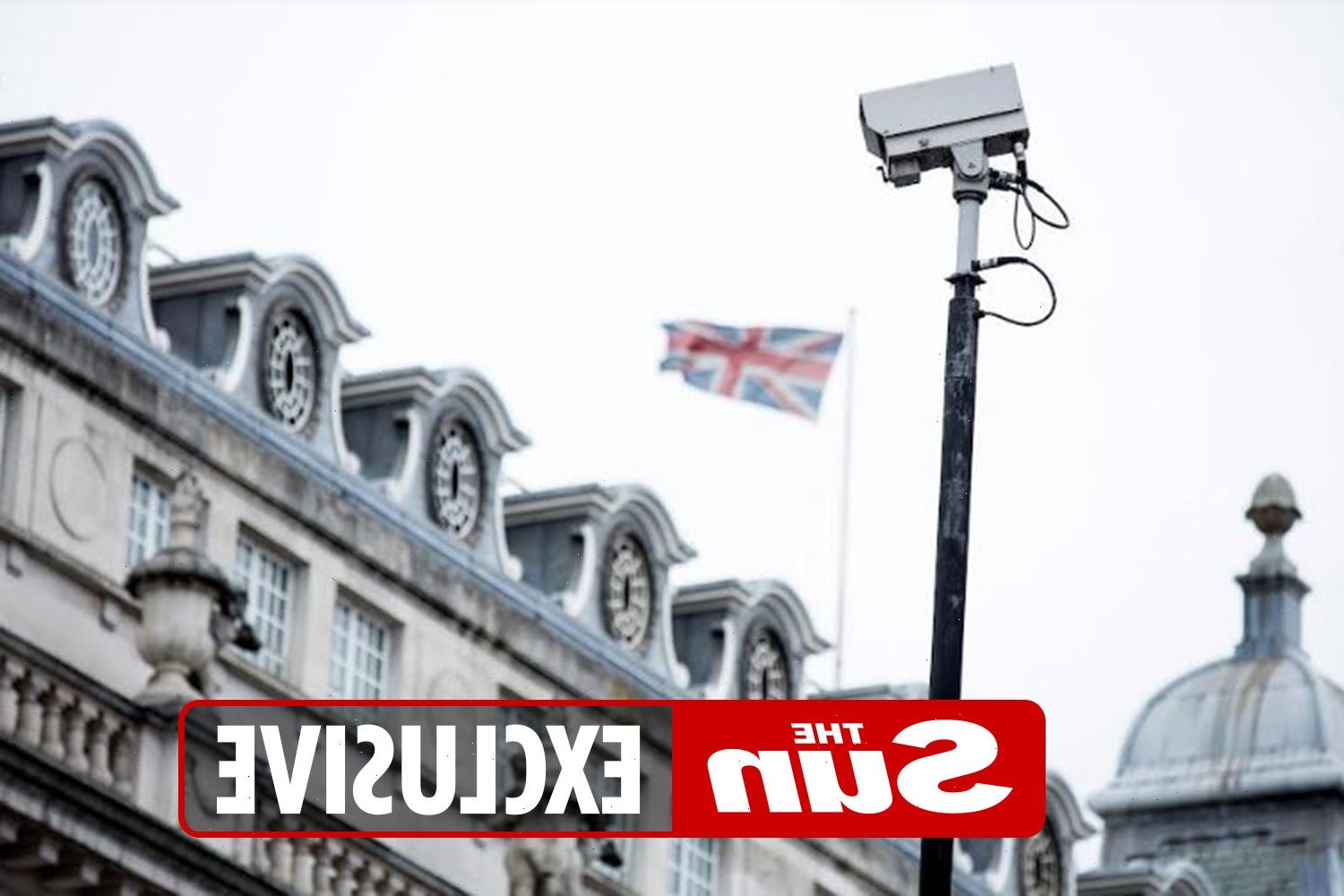MPS fear state secrets could be stolen by China using "hacked CCTV" as thousands of security cameras in the UK are owned by Beijing.
Chinese state-backed surveillance technology is believed to have been installed in several government buildings in the UK.
And cameras are still being actively bought by government departments and local councils, the China Research Group (CRG) told The Sun Online.
In a grave warning, MPs said Chinese intelligence agencies have the potential to "tap into camera feeds in sensitive locations".
China's Hikvision cameras – which are banned for government use in the United States and used in Xinjiang's surveillance state – have been installed in ministerial departments, the group said.
There are an estimated 1.2 million Hikvision cameras across the UK – and the Chinese state has a controlling stake in the firm.
It has previously been revealed that some 16 of London's boroughs have bought and installed surveillance systems made by Chinese suppliers Dahua and Hikvision, reported Reuters.
MPs have called for an urgent central review to examine potential security risks.
"It is not that difficult to bug a CCTV camera," Tom Tugendhat, co-chairman of the research group, told The Sun Online.
"The UK should undertake a central review of the use of Chinese surveillance technology, both in government but also across the UK.
"It is difficult to justify the continued use of Hikvision cameras, given both security concerns and its active involvement in the repressive surveillance state in Xinjiang.
"The UK should not be importing technology built on repression."
Chinese CCTV cameras in ministerial offices are the tip of the iceberg
In a statement, the CRG, that is made up of a committee of nine MPs, said: "Chinese CCTV cameras in ministerial offices are the tip of the iceberg.
"The UK government’s approach to buying Chinese state-backed technology is incoherent.
"There are serious concerns about security risks and complicity in human rights abuses.
"Hikvision has signed multiple contracts to supply the architecture of the dystopian surveillance state in Xinjiang."
Professor Ashok Swain said Europe has become a "priority" for China's overseas "information warfare".
"This is the key to China’s one-party control of 1.4 billion people at home, and it also plays a key role in China’s cyber warfare abroad, what it calls 'information warfare'," he told The Sun Online.
"China has been investing on this inside the country and outside since 1990s. China's focus has been primarily on Indo-Pacific region, but in recent years, the Europe has been also a priority."
It comes after Nuctech, another company with close ties to the Chinese state, was handed £12 million in security contracts at the border and in prisons.
The company provided scanning equipment in key areas of UK infrastructure – despite bans in the US and Canada, The Times reported.
Nuctech's parent company is owned by the China National Nuclear Corporation, which is linked to the Chinese military and developed the country’s nuclear arsenal.
Mr Tugendhat said: "There are questions about whether welcoming Chinese state-backed companies in our transport and defence infrastructure is in the UK’s national security interests.
"Is the UK government going to buy into China’s digital Silk Road?"
MPs have questioned why the government has allowed Chinese surveillance companies to gain a foothold in sensitive areas of security despite being banned by the UK's allies.
In 2020, Canada withdrew from a £3.9 million contract to buy Nuctech’s x-ray machines.
Michèle Mullen, director-general of Canada’s centre for cyber security, said the x-ray machines came with hard drives and USB ports which could be used for "malicious intent".
A Nuctech spokeswoman told The Times: "Nuctech is a fully independent and profitable economic operator with an open shareholder structure.
"The Chinese government does not control Nuctech’s corporate management nor its decisions anywhere in the world."
A UK government spokesperson told The Sun Online: "The government takes the security of its personnel, systems and establishments very seriously and has robust measures in place, but we do not comment on specific security arrangements or procedures."
Source: Read Full Article









